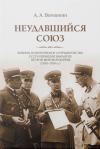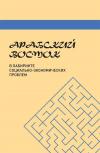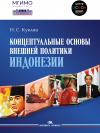11 - 12 февраля делегация РСМД приняла участие в первой международной конференции «Арабы и мир: взгляд в будущее», проведенный в Кувейте Советом по арабским и международным делам (Council for Arab and International Relations).
Со стороны РСМД участниками конференции стали Президент Совета Игорь Иванов, Генеральный директор Андрей Кортунов, член РСМД, директор Института востоковедения РАН Виталий Наумкин. В работе конференции также принял участие Посол России в Кувейте Александр Кинщак. Президент РСМД выступил с докладом «Россия и арабский мир».
11 - 12 февраля делегация РСМД приняла участие в первой международной конференции «Арабы и мир: взгляд в будущее», проведенный в Кувейте Советом по арабским и международным делам (Council for Arab and International Relations).
Со стороны РСМД участниками конференции стали президент Совета Игорь Иванов, генеральный директор Андрей Кортунов, член РСМД, директор Института востоковедения РАН Виталий Наумкин. В работе конференции также принял участие Посол России в Кувейте Александр Кинщак. Президент РСМД выступил с докладом «Россия и арабский мир».
В ходе работы конференции делегация РСМД провела консультации с рядом общественных организаций и исследовательских центров арабских стран по вопросам возможного двустороннего и многостороннего сотрудничества.
Текст выступления Игоря Иванова:
1st International Conference of
Council for Arab and International Relations
“The Arabs and the World, a Future Perspective”
11-12 February 2013
Kuwait
Russia and the Arab world
Your Excellency Prime-Minister of the State of Kuwait,
Dear colleagues,
First of all, let me thank our hosts for inviting the delegation of the Russian International Affairs Council to the First International Conference of the Council for Arab and International Relations «The Arabs and the World, a Future Perspective".
The Arab world is the ‘flavor of the day’ in global politics: developments in this region have a profound impact on the whole system of international relations; no other topic can be more timely and relevant for both politicians and academics dealing with foreign policy. And, of course, Russian decision makes and scholars are not an exception: the current developments in Arab states, short and long term trends in Arab societies, Russian policy alternatives in the Middle East and North Africa – all these issues are actively discussed today in Moscow.
The track record of Russia’s relations with the Arab world goes deep into history. It is interesting that the first credible references to the mere existence of the ancient Russian tribes come from mostly Arab travelers and geographers of the VIII – IX centuries AD. It means that we know each other for more than twelve centuries – quite a long period of time by any standard.
Of course, this track record was diverse. Sometimes Russia and the Arab world got separated from each other by other peoples and other civilizations; sometimes the Russian-Arab interaction was more intense and dynamic. But it is worth noting that Russians and Arabs never fought against each other. The Arab world never tried to extend its domination to Eastern Europe, and Russia never considered Arab states as potential colonies or objects for imperial expansion.
At the same time, there has always been a lot of interest in my country to the Arab civilization – including language, culture, religion and history. It is not accidental that Russia has been one of the first European nations that introduced “Arab Studies” as an important research discipline in its Universities and academic institutions. The interest has been mutual – many Arab merchants, scholars, intellectuals and noblemen travelled to Moscow, Saint Petersburg, other places of the Russian Empire. It should also be mentioned that unlike other major European powers, Russia for centuries was a state with significant indigenous Moslem population; this population helped to build additional bridges to the Arab world.
The Soviet period of the Russian history brought to life an entirely new level of interaction with the Arab world. The Soviet Union from the very beginning was a strong champion and supporter of the Arab national liberation. It will not be an over exaggeration to say that after the Second World war many Arab nations relied on the Soviet Union as their main protector against neo-colonial aspirations of Western powers. The symbols of the Soviet economic assistance – from the Aswan Dam in Egypt to metallurgical plants and oil refineries in Algeria – remain living witnesses of the scale of our cooperation. Thousands and thousands of Arab students were coming to study in Soviet Universities every year.
Of course, the Soviet Union has not been the only major power assisting Arab nations. But I would like to note one specific feature of the Soviet assistance: the Soviet Union never tried to shoulder its puppet, or a client, or its personal ally among the Arab leaders. The Soviet Union supported Arab nations at large, invested in economic and social development of those countries.
This is not to say that the Soviet – Arab cooperation was an ideal marriage. The ideological biases were generating problems and obstacles. The war in Afghanistan became a major test for the Soviet – Arab friendship. The restoration of diplomatic ties between the USSR and Israel was also a blow for some radical political groups in the Arab word. Still, the overall balance of the relationships between Russia and the Arabs by the end of the Cold war was clearly positive.
The world of today is much more complex and contradictory than it was during the Cold war. The relations between Russia and major Arab states are also becoming more complex than they were two or three decades ago. The Russia’s approach to the Arab world is no longer defined by the East – West confrontation. Both Russia and its Arab partners are exploring new opportunities, face new challenges and try to secure their new roles in the emerging international system of tomorrow.
One of the most dramatic developments of the recent history is the so called Arab Awakening – a chain of rapid and unpredictable social and political transformations in a number of Arab countries. The phenomenon the Arab Awakening is by no means over, it will take time before the dust settles down and experts explain to us why everything has happened. We in Russia have quite a lot of discussions about the Arab Awakening and what it might mean for us. Some discussants are optimistic, some are pessimistic; some are fearful of potential instability in the region, some are hopeful for new democracy and justice in the Arab world. I personally agree with those who think that the current situation is based on the conviction that the Arab awakening is a deeply rooted transformation, not a conspiracy or a plot staged from overseas. The question is to minimize associated risks and to enhance chances for social progress, economic equality and political representation. Outside powers are not likely to play a key role in the historic transformation of the Arab world, but we at least should do our best not to complicate this transition, but to assist it.
So, what about the future of Russian-Arab relations?
Russia will continue to spare no effort in order to provide for a lasting peace and stability in the region.
This includes the Middle East peace process, where Russia has always stood for arrangements guaranteeing the existence of Israeli and Palestinian states within internationally recognized borders.
This includes the Syrian conflict, where Russia stands for an immediate termination of violence and for a political settlement based on the well-known Geneva agreements. We believe that attempts to cast a shadow over the Russian position in this conflict are nothing but attempts by certain states to cover their own direct interference into domestic affairs of Syria.
This includes our support of the nuclear free zone in the Middle East.
In other words, Russia will continue to be actively engaged in all the efforts to enhance stability and security in the Middle East and in the Gulf area.
My deep conviction is that our interests coincide in many very fundamental ways. Neither Russia, nor Arab nations can gain anything from a growth of instability in the Middle East. A new economic or financial crisis would have a negative impact on both of us. Likewise, nuclear or ballistic proliferation in the region would be detrimental to our common security. A rise of international terrorism and political extremism will not bypass either Russia or the Arab world. In sum, we are simple doomed to working together if we really care about our national security and stability.
There are a lot of positive incentives as well. The economic potential of the Russian - Arab collaboration is by no means depleted. We can and should restore our traditional links in education, research and innovation. We can use much better existing humanitarian and cultural links. We can exchange experience in social and economic modernization – our success stories and failures alike. We can develop and utilize new instruments of ‘soft power’ that our nations so badly need. I would venture to say that the potential for cooperation between Russia and the Arab world is not limited to specific economic and political interests; it is rooted in common values and common aspirations for the future.
The Russian International Affairs Council is ready to be one of the instruments to serve this new cooperation. We are open to new ideas, new partners and new bold projects. I am sure that working together we will make our contribution to better relations between Russia and the Arab world.




